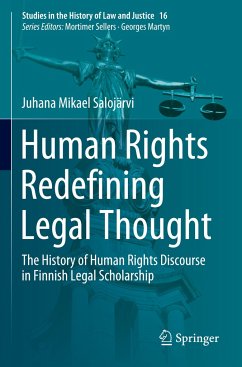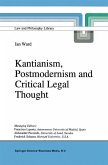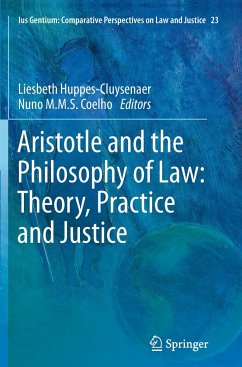This book investigates the origins and development of human rights discourse in Finnish legal scholarship in the twentieth century. It provides a detailed account of how human rights were understood before they had legal relevance in a positivist sense, how they were adapted to Finnish legal thinking in the post-Second World War decades, how they developed into a mode of legal rhetoric and a type of legal argument during the 1970s and 1980s, and how they eventually became a significant paradigm in legal thinking in the 1990s. The book also demonstrates how rights discourse infiltrated the discussion regarding problems that were previously addressed in arguments concerning morals, social justice and equity.
Although the book focuses on the history of Finnish legal scholarship, it is also interesting from a global perspective for two reasons: Firstly, it demonstrates how an idea of international law is transplanted and diffused into national legal thinking; Finland is an illustrative example in this regard. Secondly, it offers insights into the general history of human rights.
Although the book focuses on the history of Finnish legal scholarship, it is also interesting from a global perspective for two reasons: Firstly, it demonstrates how an idea of international law is transplanted and diffused into national legal thinking; Finland is an illustrative example in this regard. Secondly, it offers insights into the general history of human rights.








